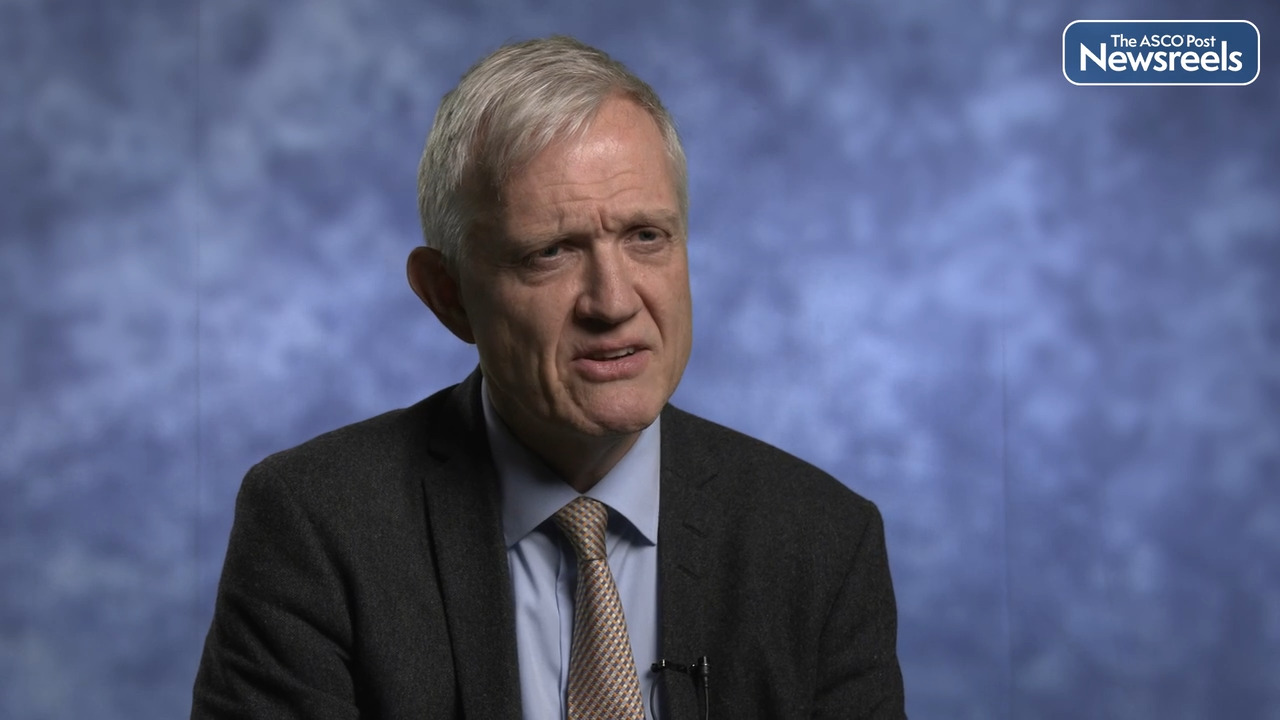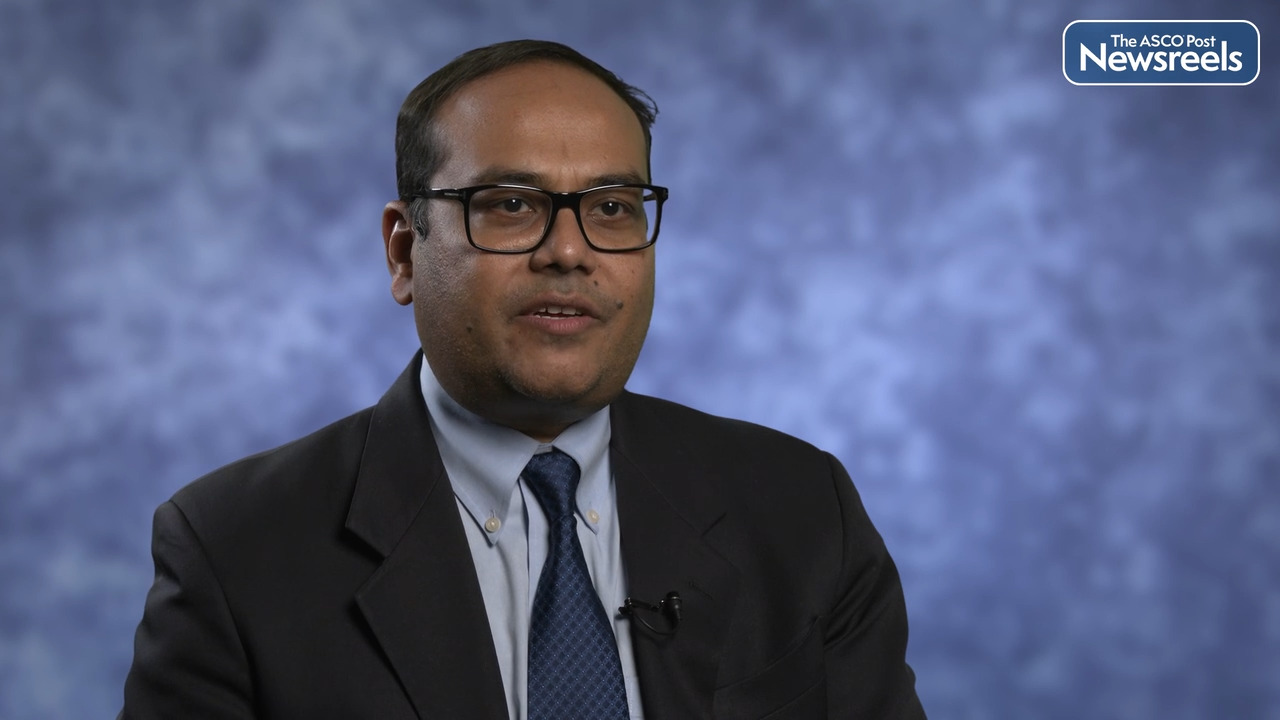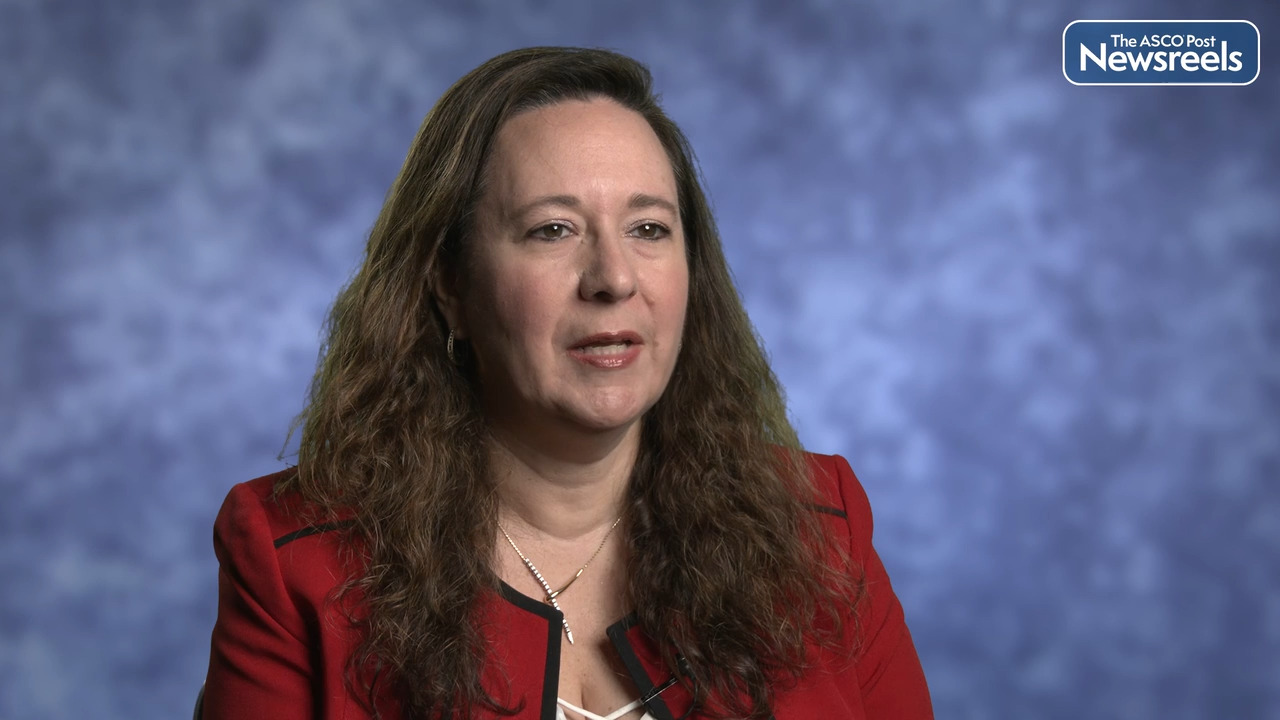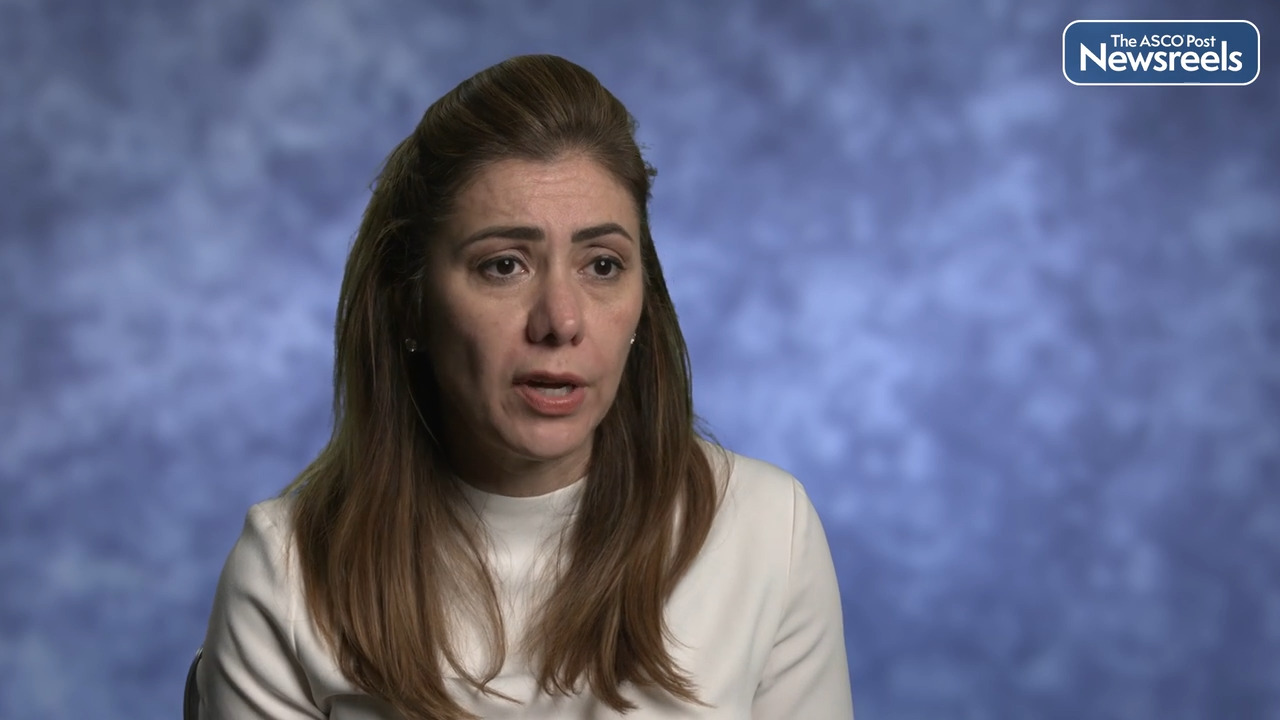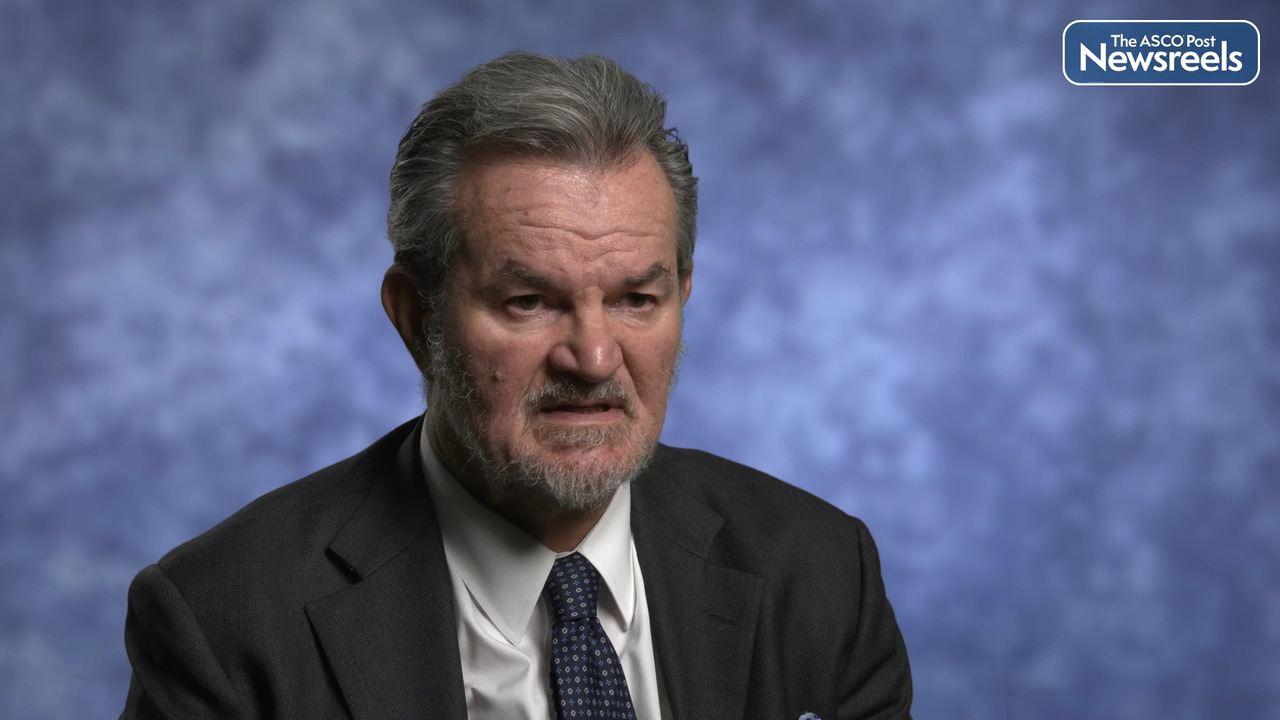Sara A. Hurvitz, MD, on Updated Survival Results on T-DXd vs T-DM1 in Metastatic Breast Cancer
2022 San Antonio Breast Cancer Symposium
Sara A. Hurvitz, MD, of the University of California, Los Angeles, Jonsson Comprehensive Cancer Center, discusses phase III findings from the DESTINY-Breast03 study, which showed that second-line treatment with fam-trastuzumab deruxtecan-nxki (T-DXd) led to longer overall survival compared with ado-trastuzumab emtansine (T-DM1) in patients with HER2-positive metastatic breast cancer. Patients treated with T-DXd had a 36% lower risk of death than those treated with T-DM1 (Abstract GS2-02).
Transcript
Disclaimer: This video transcript has not been proofread or edited and may contain errors.
DESTINY-Breast 03 was a phase 3 randomized clinical trial looking at T-DXd versus T-DM1 in patients with HER2-positive metastatic breast cancer that had progressed after trastuzumab and a taxane.
The primary endpoint was median progression-free survival by blinded independent central review. And a key secondary endpoint was overall survival. The data were originally presented in September 2021 when we showed a stunning significant improvement in median PFS associated with T-DXd, and that was really immediately practiced changing.
But the overall survival data were not mature at that time. So at San Antonio we provided updated overall survival results. We had seen 169 overall survival events in July 2022, which triggered the analysis. We showed that the median overall survival had not been reached yet for either treatment arm. However, there was a statistically significant improvement in overall survival seen with T-DXd.
The hazard ratio was 0.64. In addition, we presented updated median progression-free survival by independent review. And now the median PFS had been met with T-DXd and was 28.8 months, which was roughly four times longer than seen with T-DM1.
In addition, we saw an objective response rate of almost 80% with T-DXd, which was higher than with T-DM1. 21% of patients having a complete response compared to 9.5% with T-DM1. So overall the results show real benefits with T-DXd firmly placing this as the standard of care in regions where it's available after trastuzumab and taxane.
In terms of safety, the safety data looked fairly similar to what was previously reported. However, there were more all grade ILD events noted this time with longer treatment duration and longer follow-up. 15% or so of patients treated with T-DXd had ILD compared to about 10% at the time of initial reporting. But all of these additional events were grade one or two. There were no new grade three events and zero grade four or five events.
So in summary, I think these data really solidly place T-DXd as the standard of care in the second line setting after trastuzumab and taxane. We have exciting studies ongoing looking at T-DXd in the frontline setting, in the adjuvant setting, so I'm looking forward to seeing more data emerge relating to this very effective regimen.
The ASCO Post Staff
Per Karlsson, MD, PhD, of Sweden’s University of Gothenburg and the Sahlgrenska Comprehensive Cancer Center, discusses results from the POLAR study, which was a meta-analysis of three clinical trials of breast-conserving surgery with or without radiotherapy. POLAR is the first genomic classifier that appears not only to be prognostic for locoregional recurrence, but also predictive of radiotherapy benefit. Although patients with breast cancer who had a high POLAR score benefited from radiotherapy, patients with a low score did not, and may be candidates for omission of radiotherapy after breast-conserving surgery (Abstract GS4-03).
The ASCO Post Staff
Aditya Bardia, MD, MPH, of Massachusetts General Hospital, discusses results from the phase III EMERALD trial, the first study to demonstrate improved progression-free survival vs standard of care in estrogen receptor (ER)-positive, HER2-negative metastatic breast cancer with one to two prior lines of endocrine treatment, with or without one line of chemotherapy. This finding applied to all patients in the study, including the subgroup with ESR1 mutations (Abstract GS3-01).
The ASCO Post Staff
Judy C. Boughey, MD, of Mayo Clinic, talks about why breast-conserving therapy may be a treatment option for some patients with multiple breast lesions. For most patients who present with two or three sites of cancer in one breast, mastectomy is recommended. But results from the ACOSOG Z11102 (Alliance) suggest that for women with multiple ipsilateral breast cancer, breast-conserving surgery with adjuvant radiation therapy and lumpectomy site boosts may be beneficial (Abstract GS4-01).
The ASCO Post Staff
Mariana Chavez-MacGregor, MD, MSc, of The University of Texas MD Anderson Cancer Center, discusses phase III results from the SWOG S1207 trial which was designed to evaluate the role of adjuvant everolimus in combination with adjuvant endocrine therapy among patients with high-risk, hormone receptor–positive, HER2-negative early-stage breast cancer. Adding everolimus did not improve invasive disease–free or overall survival and was associated with high rates of adverse events (Abstract GS1-07).
The ASCO Post Staff
Andrea De Censi, MD, PhD, of Italy’s E.O. Ospedali Galliera, discusses phase III findings showing that low-dose tamoxifen (so-called babytam) given for 3 years still significantly prevents recurrences from noninvasive breast cancer after a median of 7 years from treatment cessation. Babytam at 5 mg/d for 3 years significantly lowered recurrence from noninvasive breast cancer at 10 years without “excess” adverse events (Abstract GS4-08).
